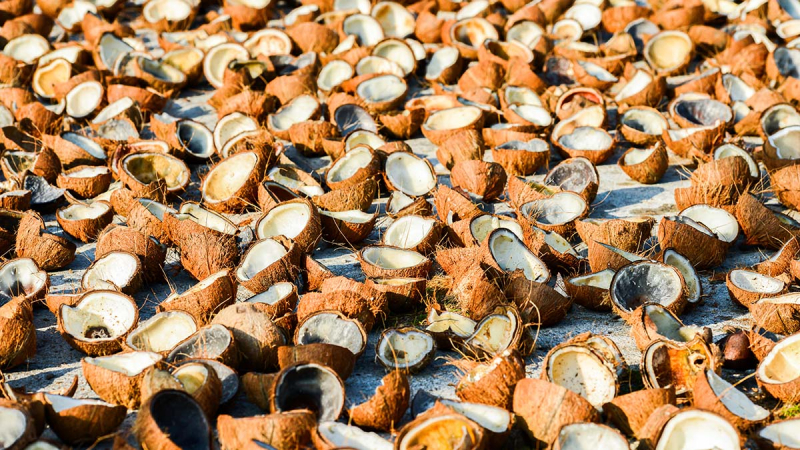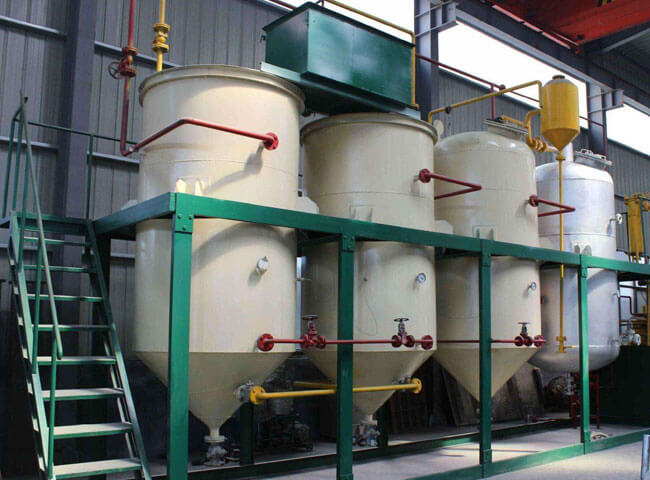Copra factory

Every island in Kiribati has a coconut tree silhouette in its scenery. Because of the atoll's ecological qualities, this is one of the few plant species that can thrive on low, nutrient-poor soil. Not only is the coconut popular, but so is the sweet, vitamin-rich coconut sap extracted from the flower stalk, which is used as a drink for youngsters or to produce syrup. When allowed to ferment, it transforms into an alcoholic beverage.
The only significant industry in Kiribati making products for export is copra – that is processing the flesh of coconuts. People across many of the outlying islands of Kiribati make their living by collecting coconuts which grow naturally; the flesh is then sun-dried and sent to the factory in Betio for processing. It’s an interesting place to see because it’s an example of real island ingenuity. The man in charge of the operation studied engineering in New Zealand, and used his knowledge to design the machinery which now provides an important source of hard currency for the country. The coconut flesh is ground up, the coconut oil extracted for use in beauty products, and the remaining powder bagged for nutritious animal feed.











